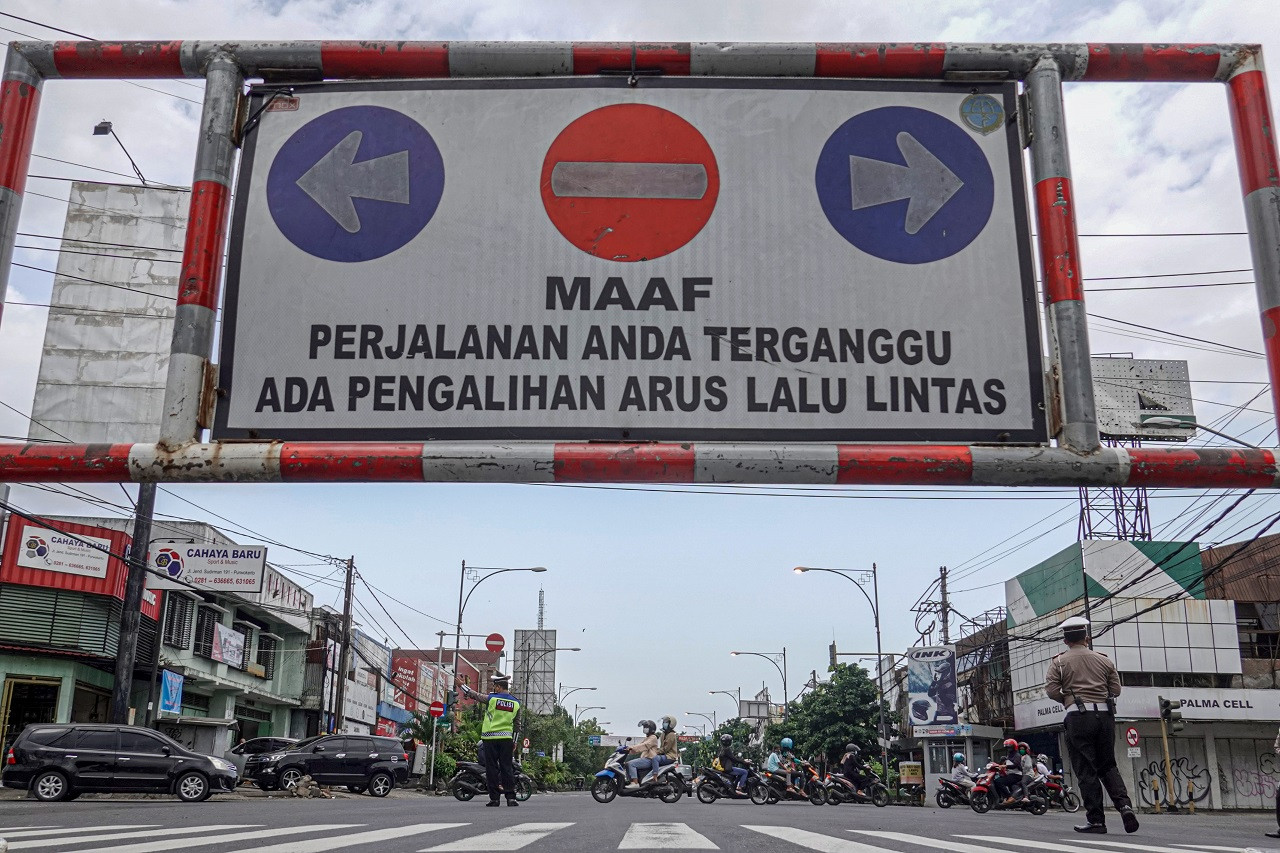Popular Reads
Top Results
Can't find what you're looking for?
View all search resultsPopular Reads
Top Results
Can't find what you're looking for?
View all search resultsGovt to subsidize wages by Rp 8.8t, businesses want more
The government will subsidize wages for some 8.8 million people for two months to take the pressure off employers in industries hit hard by virus containment measures.
Change text size
Gift Premium Articles
to Anyone
T
he government has announced a wage subsidy to help employers weather a period of tightened restrictions to prevent COVID-19 infections, but the scheme falls far short of what business associations have demanded.
Finance Minister Sri Mulyani Indrawati said the government would subsidize wages to the tune of Rp 500,000 (US$ 34.50) per worker per month. The program will run for two months, so that each employee will get Rp 1 million, which is to be transferred in a single payment by state-owned banks directly to the employees.
The subsidy will only apply to workers who are on a monthly salary of less than Rp 3.5 million, are registered with the Workers Social Security Agency (BPJS Ketenagakerjaan) as of June 2021 and work in nonessential industries in areas with level 4 public activity restrictions (PPKM).
“We will provide Rp 8.8 trillion worth of wage subsidies for 8.8 million workers [in nonessential industries],” Sri Mulyani told reporters in an online press conference on Wednesday evening.
With the support, the government aims to minimize the impact on businesses caused by the activity restrictions. The government recently extended the restrictions by five days to July 25 but promised to loosen them should there be a significant drop in cases.
However, at almost 50,000 new cases on Thursday, the daily tally of confirmed COVID-19 infections remains far above the government’s short-term target of below 10,000.
Read also: Help us pay wages or else we cut jobs, businesses tell govt
Sri Mulyani reminded companies that workers eligible for the program had to remain employed. She said the support was proposed to help those working reduced hours or put on unpaid leave by employers struggling during the economic crisis. Meanwhile, the pre-employment card program would focus on people recently laid off.
To fund both programs, the government has allocated Rp 10 trillion from the state budget. More than Rp 8.8 trillion of that sum will be disbursed for the wage subsidy, and the rest will go toward the pre-employment card program.
However, the government’s plan is a far cry from what business associations had demanded in a joint statement earlier in the day, namely that the employers would reduce wage payments to their workers while the government would cover the difference.
One association demanded that the government pay half of the wages, which would amount to a much bigger subsidy than the Rp 500,000 per month decided by the government.
The planned subsidy is also lower than payments made in a 2020 program, when workers on payrolls of under Rp 5 million could get up to Rp 2.4 million ($166) for two months.
Malaysia, in a similar but more extensive program, gives workers at least $142 per month for a period of 3 to 6 months in the tourism and retail sectors and one month in other sectors.
Read also: Indonesia to ramp up testing, tracing ahead of reopening
The government did not meet the other demand made by the business groups, namely to loosen workplace restrictions. Coordinating Economic Affairs Minister Airlangga Hartarto said the government would stick to its current policy. He said that, to have employees work on premises rather than from home during the pandemic, firms had to get an Industry Ministry permit (IOMKI).
“Industries are regulated under the IOMKI from the Industry Ministry. The health protocol [under the permit] is clear,” Airlangga told reporters, speaking at the same press conference as Sri Mulyani.
Currently, a 100 percent work-from-home regime applies to companies in business sectors categorized as nonessential, effectively forcing those who cannot implement remote work to suspend operations. In the essential sectors, the government has capped workplace occupancy at 50 percent of the usual capacity.
Meanwhile, industry associations had urged the government to loosen those restrictions by allowing firms in nonessential sectors to work with 50 percent of their staff on premises and 25 percent for auxiliary roles. They also demanded that businesses in the essential sectors be allowed to work at full capacity, which would amount to the same treatment as afforded to firms in sectors classified as critical.










